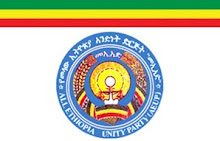Thursday, January 5, 2012
Ethiopian scholars are to blame for the suffering of Ethiopian people to this day.
For the past fourty years, since the overthrow of the feudal regime of King Hileselassie I, Ethiopian people have been grossly mismanaged, terrorized, and oppressed by the regimes that followed. The popular uprising, followed by the bloodless revolution that brought down the fourty four year old regime of Emeror Haileselassie was led by Ethiopian scholars, who at the time were students of Haileselassie I university, and who envisioned a better Ethiopia for the people. Soon after the revolution, different political parties emerged to take over the reign of power from the military junta that was ranning the country during the transition. The main popular parties that enjoyed support at the grassroots level at the time, besides the military junta, were EPRP and Meison; both embraced socialist ideologies and identified themselves as communist parties. Also, both EPRP and Meison were made up of scholars, who were fresh out of college or on the verge of graduation. However, the military junta was composed mostly of lower ranking officers with little or no academic background above the highschool level, and who were not quite sure which way to go in terms of identifying themselves with an ideology. The timing of the revolution was in the midst of the cold war between the United States and Soviet Union, and a third world country like Ethiopia could not survive long without garnering support from one of the two super powers that were wages proxy wars instead of facing each other head on. That said, the military junta brought the other parties to the table to discuss the transition of power to the people, although in vain. Before long, EPRP opted out of the negotiation and declared war against the military, while meison pledged to back the military junta in exchange for power sharing to a certain level. That turn of event that was caused by the division among the scholars who were supposed to set aside their power ambitions to bring about change that the people at large desperately wanted was what started the plight of Ethiopian people to this day. From that time to this day, Ethiopian scholars are the ones who do not seem to compromise their differences in order to come together in defence of the people, and who conspire with the ruling party to sabotage the opposition movements that are waged against it. Given that fact, the regimes that ruled Ethiopia for the past fourty years used Ethiopian scholars as a tool to stave off popular apprising in order to hold on to power for as long as they could. The most recent popular uprising, not to mention the largest, was the uprising that followed the 2005 elections. That uprising, brought Ethiopian people together in puruit of freedom at last only to be spoiled by scholars like Dr. Birhanu and Prof. Beyene, who once again conspired with the ruling party and their western backers against their own people. The point is that Ethiopian scholars should examine themselves in terms of their loyalty to their country, and put the people's cause before their own power ambitions. After all, they are the ones better equiped with the knowledge to lead Ethiopia.
Subscribe to:
Post Comments (Atom)

No comments:
Post a Comment